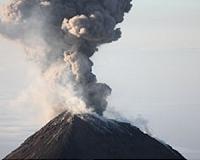| . |  |
. |
Lusanne, Switzerland (SPX) Jan 27, 2011 The Roman Conquest, the Black Death and the discovery of America - by modifying the nature of the forests - have had a significant impact on the environment. These are the findings of EPFL scientists who have researched our long history of emitting carbon into the environment. "Humans didn't wait for the industrial revolution to provoke environment and climate change. They have been having an influence for at least 8000 years." Jed Kaplan is putting forward a new interpretation of the history of man and his environment. This SNSF professor at EPFL and his colleague Kristen Krumhardt have developed a model that demonstrates the link between population increase and deforestation. The method enables a fairly precise estimate of human-origin carbon emissions before the advent of industrialization. The story of our influence on the climate began with the first farmers. At that time, the prevailing technology didn't allow an optimal use of the soil. "For each individual, it was necessary to clear a very large area of forest", explains Jed Kaplan. However, with time, irrigation, better tools, seeds and fertilizer became more effficient. This development was a critical factor, which would partially counterbalance the increase in population, and contain the impact of human pressure on the natural environment.
Agriculture - the story of a race for productivity "The real innovation in our research has indeed been the taking into account of the improvements in farming techniques. Standard models simply state that the bigger the population, the more forest is cleared; but this doesn't correspond to the historical reality. Ignoring the progress in agriculture, the preceding models implied that the same area of land is required to feed a European living in the fifth century as in the 20th century. This is why scientists struggled in trying to estimate the amount of CO2 produced by man before the industrial era. The work of Jed Kaplan's team now enables us - for the first time - to travel back thru time.
The influence of the Roman Empire and the Black Death on the climate Certain historical events, almost invisible in the preceding models, show up strongly in the data produced by the scientists. A good example is the re-growth of the forests as a consequence of the fall of the Roman Empire. The Black Death, a plague which resulted in the death of more than a third of the European population, also led to a fall in carbon emissions.
From the decline of the American indians to the minor ice age Threatened with extinction, these populations effectively deserted the forested areas, which - by taking up the carbon in the atmosphere - in turn set off the legendary frosts of the 19th century. "Of course, it's only a hypothesis", he concludes, "but given the data we have gathered, it's entirely plausible". Jed Kaplan's model is not in contradiction with the previous ones on one critical point: the enormous increase in emissions from the beginning of the industrial era, and the massive use of fossil fuels. "We are just saying that our influence on the climate began a lot earlier than we thought. In 6000 BC, we were already accumulating significant quantities of carbon in the atmosphere, even though it was nothing compared to the situation today", adds the scientist. A conclusion that could turn out to be critical in the future for the improved evaluation of the decisive impact of the forests on the climate.
Share This Article With Planet Earth
Related Links EPFL Climate Science News - Modeling, Mitigation Adaptation
 Man, Volcanoes And The Sun Have Influenced Europe's Climate Over Recent Centuries
Man, Volcanoes And The Sun Have Influenced Europe's Climate Over Recent CenturiesBarcelona, Spain (SPX) Jan 21, 2011 An International research team has discovered that seasonal temperatures in Europe, above all in winter, have been affected over the past 500 years by natural factors such as volcanic eruptions and solar activity, and by human activities such as the emission of greenhouse gases. The study, with Spanish involvement, could help us to better understand the dynamics of climate change. Up until ... read more |
|
| The content herein, unless otherwise known to be public domain, are Copyright 1995-2010 - SpaceDaily. AFP and UPI Wire Stories are copyright Agence France-Presse and United Press International. ESA Portal Reports are copyright European Space Agency. All NASA sourced material is public domain. Additional copyrights may apply in whole or part to other bona fide parties. Advertising does not imply endorsement,agreement or approval of any opinions, statements or information provided by SpaceDaily on any Web page published or hosted by SpaceDaily. Privacy Statement |